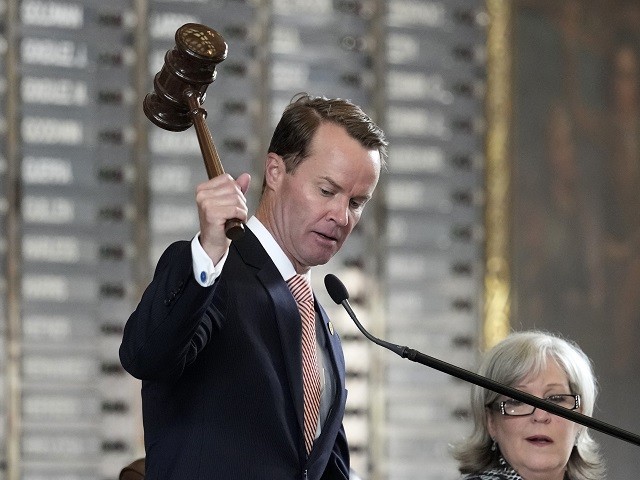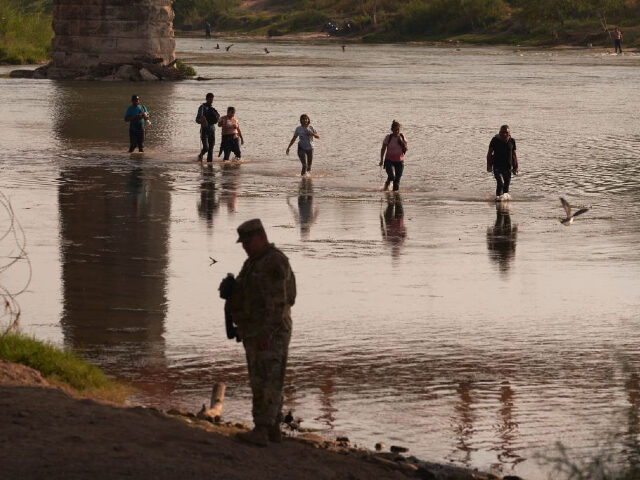Texas legislators are debating border reforms that could help many Americans in other states — but advocates warn that emerging legislation would surrender Texas’ legal rights to the federal government.
The leading border-enforcement bill, titled HB 20, “clearly recognizes the authority of [Texas and other] states to invoke Article I, Section 10, Clause 3 of the United States Constitution to repel illegal border crossings … [yet] the bill’s language may undermine its purpose,” said a joint statement by the Federation for American Immigration Reform (FAIR) and Texans for Strong Borders.
Texas Republicans are trying to pass several bills to counter the inflow of roughly 4 million southern migrants welcomed by President Joe Biden.

“Biden, please let us in,” reads in English on the T-shirts of a group of migrants from different backgrounds who made their way to the “El Chaparral” international border crossing. (Stringer/picture alliance via Getty Images)
“Addressing our state’s border and humanitarian crisis is a must-pass issue for the Texas House this year,” said a statement from the Republican leader of the Texas House, Rep. Dade Phelan (HD-21). He has endorsed several bills, including House Bill 20, sponsored by GOP Rep. Matt Schaefer (HD-6).
The bill would create a Border Protection Unit and allow trained police officers to “arrest, detain, and deter individuals crossing the border illegally including with the use of non-deadly force.”

Texas Speaker of the House Dade Phelan, R-Beaumont, strikes his gavel as he opens the special session called by Gov. Greg Abbott, Thursday, July 8, 2021, in Austin, Texas. (AP Photo/Eric Gay)
Pro-migration groups are opposing HB 20. It is the “most dangerous proposal we have ever seen on border issues,” claimed Roberto Lopez, the migration advocacy manager for the Texas Civil Rights Project. The Border Protection Unit would be “potentially staffed by vigilantes,” he said.
In contrast, border security advocates are seeking to refine the bill’s language. “This bill seeks to give Texas the tools and explicit statutory authority to repel the invasion at our border … However, we have some serious concerns that the bill’s language may serve to undermine its purpose,” said the joint statement by FAIR and Texans for Strong Borders.
NO CONTROL OVER BORDER: Border Patrol Chief Disagrees with Biden:
C-SPANThe statement continued:
First, it seems to make the invasion powers subject to the authority of federal immigration law (Title 8), however, such language would undermine enforcement of these provisions and pigeonhole this section of the bill into the precedent set in Arizona v. U.S. The entire point of Article I, Section 10, Clause 3 is that these powers are NOT subject to congressional authority when a state is “actually invaded, or in such imminent danger as will not admit of delay.”The simple removal of the language delegating powers vested to the states under Article I, Section 10 be subject to federal immigration law would eliminate this concern.In addition, the requirement to observe an illegal crossing and arrest/detain in the “immediate vicinity” of the border would unnecessarily limit the scope of removal authority to a tiny fraction of illegal crossings. We suggest broadening the scope of this provision to include illegal aliens like those who are being arrested every day under Operation Lone Star.

COMMENTS
Please let us know if you're having issues with commenting.